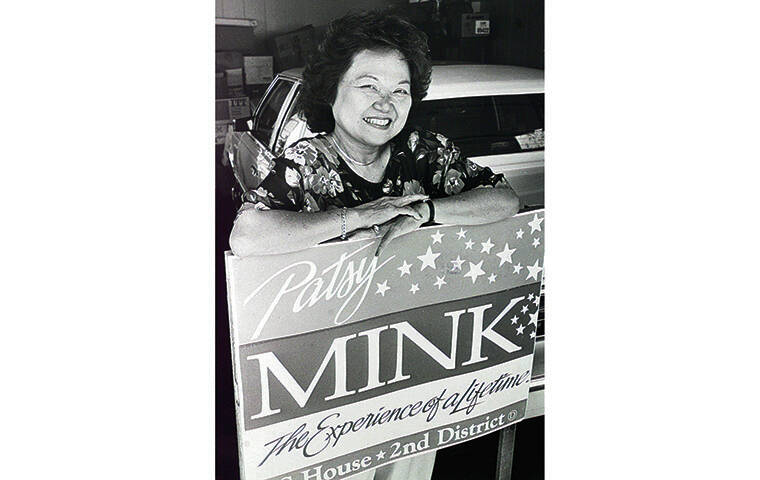At this age, it’s hard enough to remember yesterday, let alone last week.
And 50 years ago?
What was the question?
June 23, 1972 was a Friday. Likely it was the end of the first week of summer school (Chemistry and Independent Studies, funny what one does remember) and, even more likely, the thoughts were of going to the beach and working on a tan, and not about senior year of high school starting in a few months.
And, very likely, that evening was spent in Muni Gym, a home away from home for three summers, scorekeeping for University High’s boys varsity basketball team.
It is doubtful that the passage of Title IX of the Education Amendments of 1972 registered that day or even for almost a year.
At a high school baseball tournament during Easter break in 1973, a sports writer for the San Diego Union asked for my thoughts about the landmark legislation that states, “No person in the United States shall, on basis of sex, be excluded from participation in, be denied the benefits of, or be subjected to discrimination under any education program or activity receiving federal financial assistance.”
Among the questions was one about the merits of girls playing sports, another whether girls should be playing on boys’ teams.
My focus was more on covering the baseball game for the tri-weekly North Shore Sentinel than being profound, but one response was that if a girl was good enough, why not?
I was mortified when reading his story the next day — thank goodness school was on break — because, out of the nine innings of discussion, he chose to use a comment out of context. I had mentioned that we often had coed P.E. classes and I broke my wrist playing volleyball when my male teammate ducked into my arm during my first-ball contact dig.
The story suggested that, because of my experience, it would be dangerous for females to be playing with males due to the injury factor.
And so began nearly 50 years of my goal to quote accurately and with context, as well as trying to educate folks as to the intent behind what is now known as the Patsy T. Mink Equal Opportunity in Education.
Rep. Mink (D-Hawaii), recognized as the major author and sponsor of Title IX, passed away on Sept. 28, 2002, three months after the 30th anniversary of the legislation that bears her name.
In 2002, the Honolulu Star-Bulletin did a week-long series about women and sports in Hawaii through the decades. The interview with Mink was the centerpiece of the series, running 30 years to the day of Title IX passage.
(Star-Advertiser subscribers can access the series via the Archives feature).
I was blessed to have been the last Hawaii reporter to interview Patsy Takemoto Mink, she graciously staying late in her Honolulu office for a 15-minute phone call that lasted more than 30. Most illuminating was the revelation that Title IX originally was not envisioned to include athletics.
“I never anticipated that all this would happen,” she said. “It was a deep-down wish that it would make a difference at some point.”
The impetus was born from her own experiences of guilt by gender and heredity. Mink, who turned 14 the day before Pearl Harbor was bombed, saw her father taken away for questioning after war was declared.
Maui High’s first female student body president and Class of 1944 valedictorian initially enrolled at the University of Nebraska. There she fought housing discrimination after being placed in the “international” dorm, a term for “colored.”
She wanted to be a doctor but no med school was admitting females, except for one all-women’s college. Mink chose to fight the system by becoming part of it, receiving her law degree from the University of Chicago, and then bucking it. After no Honolulu law firm would hire her, she started her own practice.
Perhaps the most admirable of her traits were her commitment to educational equality and opportunity, and her ability to cultivate friendships, no matter how unlikely. While she was at odds with President Lyndon Johnson’s Vietnam policy, the two bonded over gender inequity that literally hit home with Johnson when his newly married daughter Luci Johnson Nugent was refused re-admission to Georgetown’s nursing school because it did not permit married students.
“It didn’t just happen,” Mink said in the 2002 interview. “It was a series of events between 1964 (Johnson signing the Civil Rights Act, then the Higher Education Act of 1965) and 1972 that culminated in the Education Amendments of 1972.
“Title IX was just a part.”
It’s played a huge part in athletics ever since the words “or activity” was added. President Gerald Ford signed the Title IX athletics regulations in 1975 after noting “it was the intent of Congress under any reason of interpretation to include athletics.”
Still, 50 years later, the battles continue and the misconceptions persist. At a breakfast last week someone brought up Title IX and, when another asked what it was, the answer was “women playing sports.”
I hope I channeled Patsy Mink’s trademark graciousness when saying, with a smile, “It’s about equal opportunities for everyone in programs receiving federal funds.”
I don’t remember if I thanked Rep. Mink for her hard work when we spoke 20 years ago. Even if I did, there will never be enough mahalos for her legacy that continues to pay (and play) it forward.
———
Reach Cindy Luis at cindy3luis@gmail.com.

